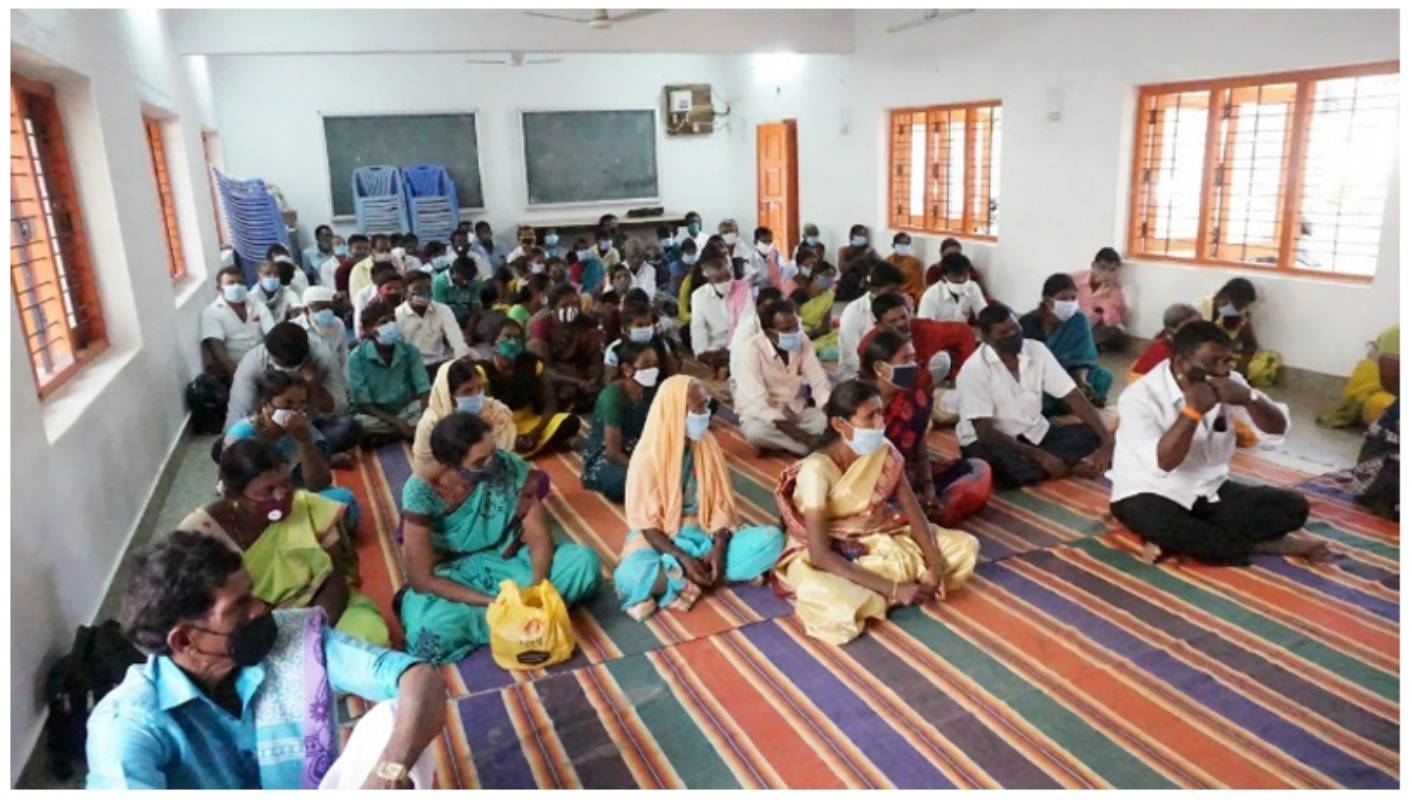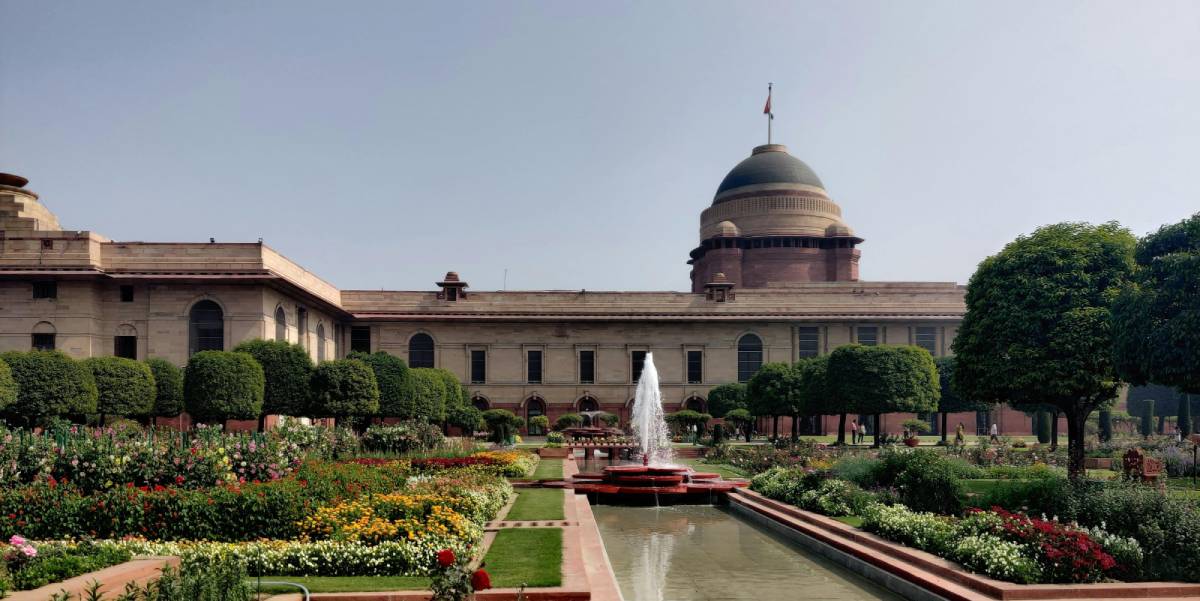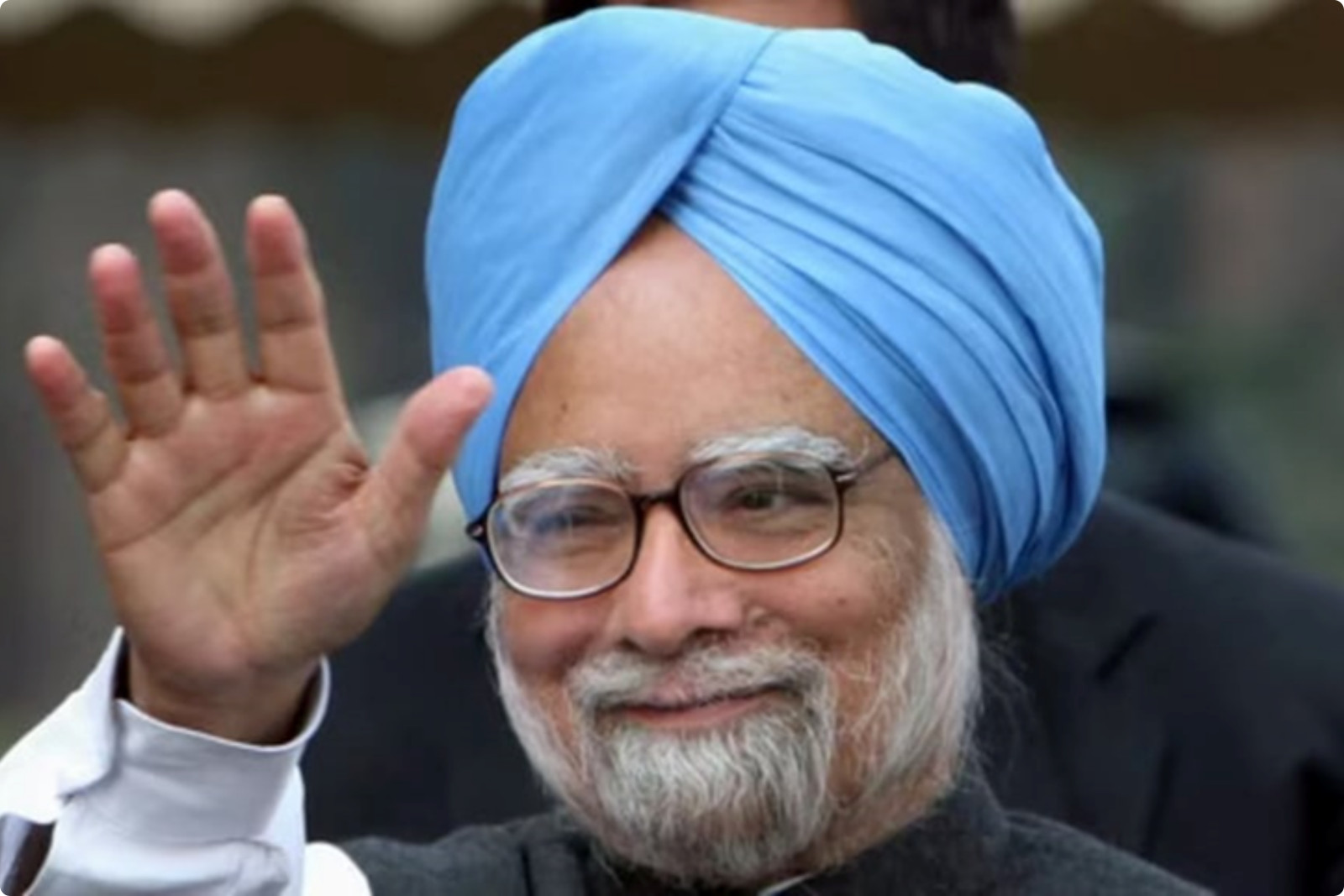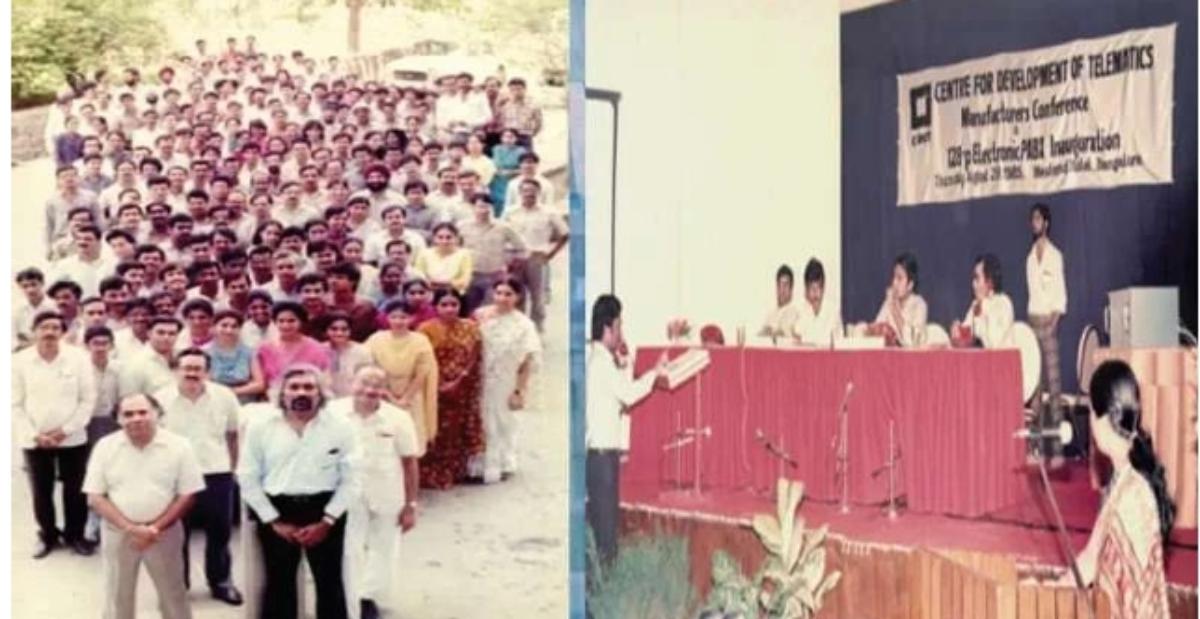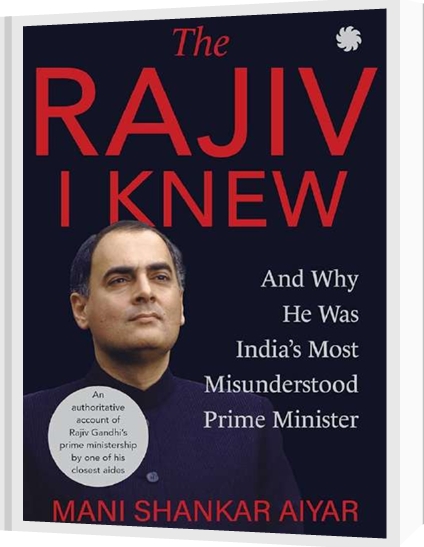Introduction1
ADATS
ADATS is a secular Non-Government Organisation (NGO) working with 55,010 small and poor peasant families from 1,257 villages in 5 Taluks of Chickballapur District, Karnataka, for the past 44 years, since 14 December 1977. ADATS implements comprehensive rural development activities in the fields of Community Organisation, Adult Literacy, Children’s Education, Community & Referral Health, support to issues and struggles with Legal Aid & Aid Distress, Dry Land Development, Agriculture, alternate Credit,Women’s Programmes, etc.We also work on issues of gender justice, secularism and democratisation.
ADATS is a pioneer in the field of Climate Change. For the past 25 years, we implement community owned and managed climate projects. Rural women reduce Greenhouse Gases and, at the same time, earn carbon revenue by providing a vital environmental service to society at large. End Users of these technologies are encouraged them to see themselves as “business women” and not as recipients of anyone’s charity. All these are efforts to empower the Coolie caste-class in village society, and build an authentic people’s organisation, the Coolie Sangha, at the Village, Gram Panchayat and Taluk levels.
What is the Coolie Sangha?
The Coolie Sangha is a membership based people’s organisation comprising of small and poor peasant families who struggle to rid themselves of Ryot exploitation and take control of their own lives in order to undertake grassroots planned development activities. The Coolie Sangha is a 41 year-old membership based people’s organisation formed by small and poor peasant families (landed and landless agricultural labourers) in their respective villages. All the village poor do not become a part of it merely by virtue of their caste-class. Every year, families renew their membership by declaring annual income a paying a percentage to their respective village Coolie Sangha Unit.
- Currently, 9,624 small and poor peasant families are active Members in 448 functioning village Coolie Sangha Units.
- 31,624 families from the functioning villages as well as 462 dropped out villages are dormant this
- In addition, another 13,762 non-Coolie Sangha families benefit Climate Change programmes of
Within villages with functioning Coolie Sangha Units, population coverage is 19%. Overall population coverage in functioning and dropped villages is 44%. Both figures contribute to a socio-political presence of 24% in Chickballapur district.
See more about ADATS founder Ram Esteves in a video at https://youtu.be/3GMhU0Q81jo
And about the Coolie Sanghas in a video at https://youtu.be/jPHINoBmIXM
Cadre Meetings
After such a long spell of Lockdowns and unlocks we decided to call the Coolie Sangha cadre from each Gram Panchayat for day long meetings at ADATS Campus, Bagepalli.We requested small groups of 30-40 from two or three Gram Panchayats to come on fixed days, wear masks and sit a few feet apart. But like all best laid schemes of mice and men, the response was way beyond what we had planned. Many older CSU Members incredulously asked, “What??!! You don’t want me to come and listen to Ram Sir?”.
Since rural bus services haven’t yet started, they hired tractors, tempos and autorickshaws to pour into Bagepalli. For very many this was the very first “outing” after having been cooped up in and around their villages for the past eight months. They donned their best saris and even the infirm came with jaunty steps and happy smiles that could be seen through cloth masks and in the sparkle of eyes.
| Tuesday, 17 Nov 20 | Rascheruvu and Billur GPs | 11:30 am
to 3:00 pm |
9 villages |
32 women |
31 men |
| Wednesday, 18 Nov 20 | Thimmampalli and Gorthapalli GPs | 11:30 am
to 3:30 pm |
12 villages |
35 women |
37 men |
| Saturday, 21 Nov 20 | Marganakunta, Gulur and Kotha- kota GPs | 11:00 am
to 4:00 pm |
19 villages |
38 women |
51 men |
| Tuesday, 24 Nov 20 |
Julapalya GP |
11:30 am
to 1:00 pm |
14 villages |
40 women |
28 men |
| Saturday, 28 Nov 20 | Kanagamakalapa- lli and Mittemari GPs | 11:00 am
to 3 pm |
21 villages |
31 women |
22 men |
| Wednesday, 2 Dec 20 | Somnathpura and Venkatapura GPs | 11:30 am
to 3:00 pm |
19 villages |
36 women |
22 men |
After greeting each other and sharing a genuine joy at finally being just 3 feet distant after being kilometres apart for most of this year, I asked them to share personal, family and village experiences of the past 8 months. We would sit for however long, till every single person present had nothing left to say. The tales of grief, anguish, dread, anger, resentment, achievement, accomplishment that followed were building blocks to compile penetrative literature on what actually happened in the countryside due to the pandemic and lockdowns. The confusion, anxiety and questions they asked could only be replied with stark honesty which often required a humble admission of ignorance.
The plan was that I would speak only in the last half hour of each meeting, offering my own interpretation of what I’d heard and together attempt to find a pattern or framework of sorts to fit everyone’s experience into. But then again, as with all best laid plans… Then a hurried two-course lunch and frantic scramble in an overcast drizzle to find their motley modes of transport to reach home before dark.
(As is wont in Human socialisation, many could not resist clutching my hands, a tight embrace and a couple of “selfies” before leaving, momentarily throwing 3-4 hour long enforced physical distancing to the winds…)
This chronicle is not a recording of the minutes of the six meetings. It is a penning of the sum and substance of everything that 212 women and 191 men from 94 villages shared in 21½ hours spread over 6 days, interspersed with select anecdotes and authentic statements paraphrased to the best that my memory serves.
The Pandemic

“We were all so scared. Police constables doing their beats in every village. Government health workers coming so many times.The Circle Inspector in her jeep telling even petty shops to shut down.They really frightened us.”
“Not just during the Lockdown, but even afterwards.We couldn’t understand what was happening.What is this Corona? Why is there no medicine for it?”
This is how every meeting started.
Coronavirus
Though we had said that they should first share their experiences and then we would respond, I had to give 15 minutes of explanation on coronavirus, how the non-living “thing” multiplies and spreads, its mutation history, how little we know about it, the earlier pandemic of a century ago, mortality rates then and now, transmission, difference between infection and disease (asymptomatic and symptomatic), that medicines are chemicals that kill pathogens like bacteria and germs that cause diseases, but no medicine can “kill” a non-living virus.
I emphasised that there is no “cure” for COVID-19. The misleading analogy with “war” is based on a false notion of “defeating” the virus. Instead our focus has to be on stopping the spread with masks, physical distancing and building immunity through vaccination. I couched it all in a blunt admission of our general ignorance.
“Then what about Lockdown? Is it good or bad? Was it even useful?”
I explained that Lockdown was a pause button pressed to make urgent preparations; it was not a “cure”. Coronavirus could not be wished away on a wing and a prayer. Lockdown gave the public health system time to recruit and train more health workers, increase hospital beds and get more oxygen and ventilators. It is a time to educate the population on COVID-19 and prepare them, as much as possible, to stay safe and prevent the spread.
Unfortunately, it was also a time when idle minds and a wicked ill-informed lot spread reckless rumours, circulated
false information, blamed communities, targeted the sick, and created a phobia.
To the best of our knowing, coronavirus has been around for at least 130 years. And no, there were no factories in China at that time to manufacture the virus.
COVID-19 Cases
Only after this brief “lesson” did they begin to narrate their experiences.There were a few deaths, but it was the manner of their passing that was cruel and inhuman.
“Thippe Naik of Siddapalli Thanda felt unwell and himself went to the district COVID-19 Hospital in Chickballapur. That was the last we saw of him. He died, all alone, after 15 days and was buried by the authorities. We couldn’t afford to bring the body back to our village.
“The double tragedy is that Thippe Naik’s son’s kidneys failed some years back and it was the Father and daughter-in-law who ran the family. Now it is all on her.”
Laxmidevi from Malligurki village gave a heart wrenching account of how she took her three year old son to private clinics and hospitals where they refused to even examine him. Finally, she landed at the Children’s specialist hospital in Bangalore where they did examine and diagnose pneumonia. But they would not admit since he may or may not be infected with COVID-19 and they couldn’t risk other patients in the ward. She brought the child home and watched him die a slow and painful death.
When Sheriff Sab from Rascheruvu MV village got doubts, he went across the border to Kadiri, where he thought he would get good treatment. When there was no improvement, he managed to reach the major COVID-19 hospital in Bangalore, in spite of the Lockdown. Unfortunately, he was too late and died.
His family spent a lot of money to bring the body back to the village in a government ambulance, but they could not even see Sheriff Sab one last time since he was in a sealed plastic bag. The authorities lifted the body with a JCB, dumped him in a pit they had dug with the same JCB and pushed the mud back.
Shafiq from Rascheruvu HC village was isolated because he had been in close contact with Sheriff Sab. But he continually tested -ve.
In Mandyampalli village, Venkataravanappa’s house was sealed when he tested +ve and no one was allowed to come out or go in. He was taken in an ambulance to the district COVID-19 Hospital in Chickballapur. He came back cured after 14 days. Then he got a second attack and the authorities took him to the major COVID-19 Hospital in Bangalore where he died.
The Asha Worker of Julapalya village died of a heart attack when she found that she had tested +ve.
Not all died. We explained that unlike the first time, 102 years back, only 1.4% of infected people have died with COVID-19. A century back, mortality was 4% of the world population.This is because of an increased understanding of coronavirus, better prevention of its spread, and ability to treat symptoms. The maths works out to 1.4 lakh COVID-19 deaths in India, in addition to 94 lakh natural deaths in a normal pre COVID-19 year due to old age, heart attacks, road accidents, murders and dowry deaths.
Nagaraj’s house in Devareddipalli village was sealed when he tested +ve and was taken to the temporary COVID-19 centre in nearby Poolavaripalli. His family members could not come out or anyone go in for 14 days till he recovered and came back.
A child in Iddilivaripalli and two adults from Gundlapall and Chinnaganapalli villages all tested +ve and were sent to a temporary COVID-19 centre at Puligal Cross. They all recovered and went back to their respective villages.
Mota Anjinamma from Jeekavanlapalli broke down in the meeting, “My husband got a simple cough and cold. Villagers threw him out, that too on the village festival day. Coolie Sangha Members stood firm and said that all the villagers could clear out if they wished. This man has not been tested +ve. Who are you to say he has COVID-19? They brought him into the village.
“For some days villagers refused to even buy bondas from my shop.”
Shankarachari from Billur has a drinking water supply business. Villagers heard that his relatives tested +ve in Bangalore. They prevented Shankarachari from collecting water from the fluorosis-free borewell in the village.The Coolie Sangha intervened and said they could stop drinking salt-free water if they wished.
Authorities placed Gangulamma’s husband in quarantine in Rascheruvu MV because he used to go to the villages and sing bhajans in the night and could, possibly, be a spreader though he was never tested.
Bhagyamma’s house in Marganakunta village was sealed with her aged mother, husband and 3 young children. For the first two days no one went near. On the second evening, the VHW and other Sangha Members decided that enough was enough.They started placing drinking water buckets and some cooked food outside her house for the next 10 days.
In Marganakunta HC village, Jayamma, her son, daughter and two children were all tested
+ve. Since their house was in the dead centre of the colony, they decided to move to their pumphouse in the field.The VHW, Balakendra Teacher and a GP Member sent them cooked food every day for the next seven days.
Chowdappa’s son-in-law was a tractor driver in Maddanapalli town. When he came back to the village, he had a fever and tested +ve. Their house was locked down for a week. The VHW, Balakendra Teacher and CSU Members helped the family by supplying drinking water and food every day.
In Narayanaswamykote village, Sreenivas, a Coolie Sangha Member and two non-Sangha families all tested +ve. Sreenivas has just an aged mother and two daughters, one of them a qualified Nurse.They were all quarantined for a week and the Nurse took care of them. Finally, it was found that the test results were wrong. In the meanwhile, neighbours defied the authorities and made sure all three families received cooked food and drinking water.
Not once in these six meetings did anyone blame anyone, in spite of my pointing out instances where the worst in humanity surfaced, even in their own vivid narrations. Just a dazed confusion along with a something that at first looked like stoic fatalism. Then I realised that for most of them, speaking to me was a cathartic experience, sharing anxieties, releasing pent emotions and somehow getting rid of a tormenting angst that was tearing at their insides.That is why they had braved it to flock to these meetings.
But everyone’s attitude towards the public health system can at best be described as ambivalent, and their faith in testing dubious.
The Anganwadi Teacher from Seegalapalli tested +ve and was sent to a temporary COVID-19 centre at Puligal Cross. The next day she tested -ve. The day after, +ve. This went on, alternatively, till they discharged her after 10 days.. She is okay now, but even today villagers are scared to send their children to her Under-5 Crèche.
Srinivas Reddy of Pichilavaripalli village went to spray his tomato crop. The pump was stuck and he first blew into and then sucked the pipe. He immediately got very sick and the authorities rushed him to the major COVID-19 Hospital in Bangalore. He died, all alone, after 15 days. They brought back his body and he too was buried with a JCB, with the whole village forced to stand a kilometre away. “Why was he taken to a COVID-19 Hospital? Was it not the pesticide that poisoned him?”
Easwaramma from Devareddipalli village called for an ambulance when her 19 year old daughter had difficulty with her first delivery. The ambulance driver took her to the temporary COVID-19 centre because that is where the nearest doctor was. Fortunately, the baby was born healthy and after a harrowing wait of several days they found that neither mother, child nor grandmother were infected.
When Venkatesh from Papanepalli village had a motorcycle accident his Mother had to run from pillar to post with her injured son. No private hospital would even touch him and she was too scared to take him to the government hospital. Somehow, he survived.
Another youngster from Byrappanapalli had a motorcycle accident. They took him to private clinics and government hospitals. But no one would even give him first aid. While they were arranging to take him to Bangalore, he died.
Health Services
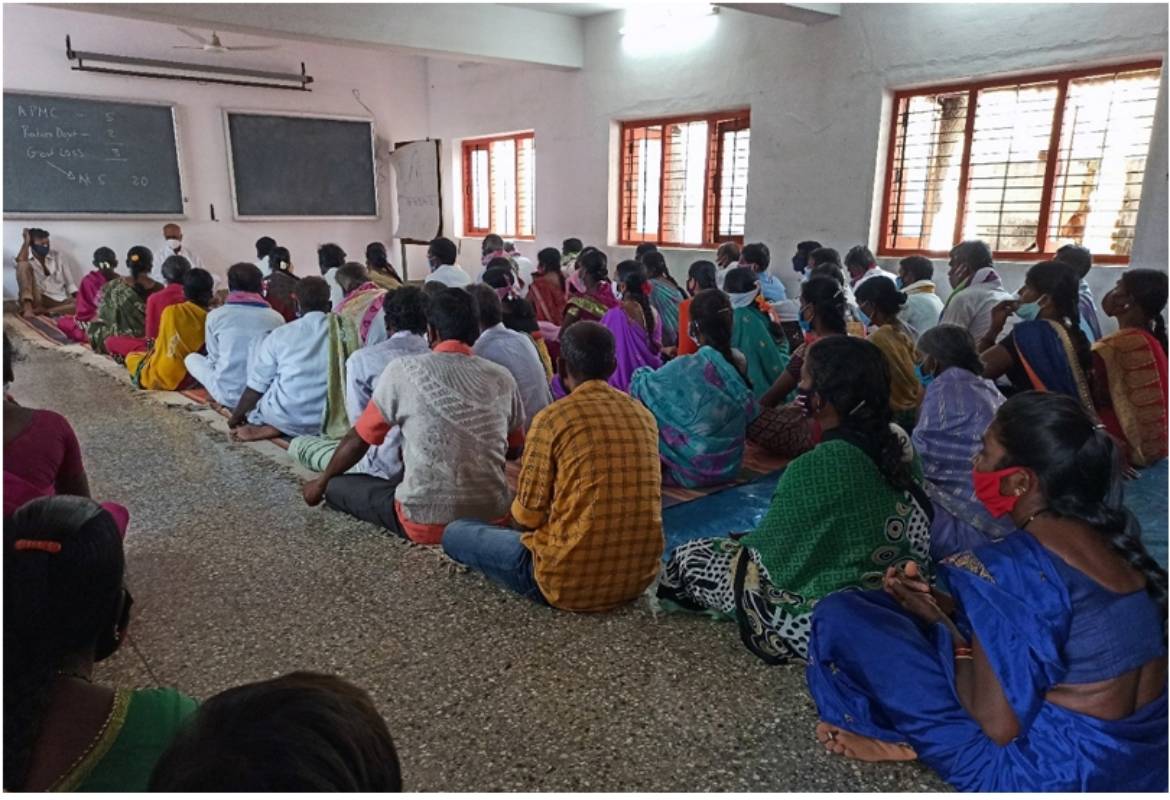
The Coolie Sangha’s health activities were availed by one and by all – CSU Members and non-Members, rich and poor. Everyone went to our Village Health Workers for not just headache, earache, fever and stomach upsets, cuts, bruises and skin rashes, but for every conceivable ailment; especially when they had a head cold, sore throat and running nose and dared not go even close to a health professional. We had to double and sometimes triple the quantity of basic medicines clandestinely sent to the VHWs every month, even during the Lockdown months.
Two months back, the government started a district wide drive to test everyone in the villages. The 13 people who tested +ve in Marganakunta village, two more in Muguchinnapalli and one from Malligurki all ran into the fields and hid themselves in the rocks and outcrops.
ADATS Staff approached the district health officer and asked what they would do.The Doctor replied, “There is nothing we can do. They don’t trust us. Could you please help them? I can prescribe some paracetamol, vitamins, supplements, inhaler drops and an antibiotic course (just in case; as you know, there is no cure for COVID-19). Unfortunately, I don’t have stocks in the general hospital.”
We went to the local pharmacy and bought 200 ‘kits’ @ `250 each for Field Staff to carry with them whenever they went to the villages.
Thippamma from Gorthapalli was randomly tested. After 2 days, her son got a message on his mobile saying she was +ve and she was brought in an ambulance to the Bagepalli hospital. While they were processing to send her to a temporary COVID-19 centre, she escaped and came running to the ADATS campus. Our Field Worker gave her a ‘kit’, made her go back to the village and isolate herself.
In Malligurki village, Subbarayappa’s house was sealed with four adults and two children inside. Coolie Sangha Members gave him everything he needed for a week and they all got the ADATS ‘kits’. Now they have all tested -ve and are okay.
Gangulappa’s son Nandish and Chowdamma’s son Harish from Muguchinnapalli were tested both tested +ve. They claim that the ADATS ‘kits’ have ‘cured’ them.
“Ram Sir, it is these ‘kits’ that will cure coronavirus. Not those temporary and special COVID-19 hospitals.”
“Now the roadside shops are all closed and, in any case, we cannot come to town to eat chaat, bajjis, bondas and pani puri. We eat healthy foods and make our bodies strong. We have started taking Kashayam (herbal tonics and concoctions) that our grandparents used to prepare.”
Though I knew that these shenanigans – be they symptomatic drugs or concoctions – would do no good, I just smiled and kept quiet, knowing that health was as much a confident state of mind as a product of medical intervention. When pressed, my response was:
“COVID-19 is a very dangerous syndrome. It opens up our bodies for all sorts of infections to enter through the windpipe. When we keep all the doors and windows open, we don’t know which thief will enter and what he will rob. We need to be cautious, but not scared silly.”
Lockdown
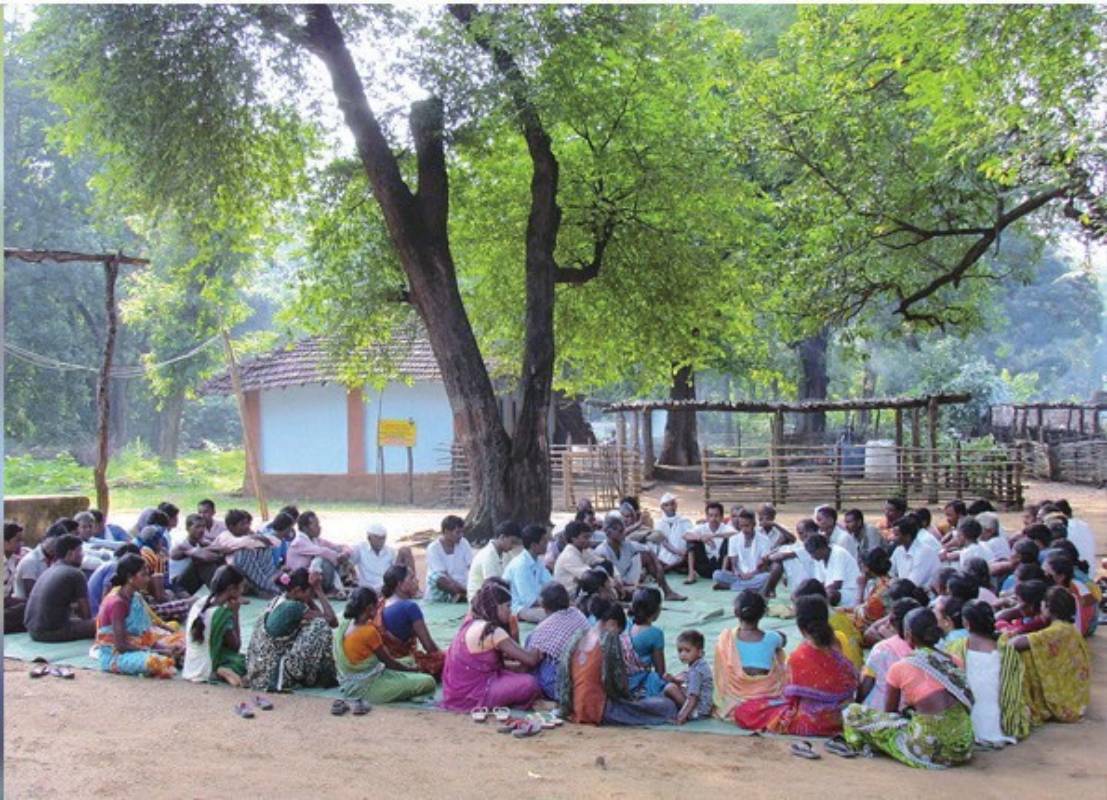
The Shadow of Death
People were unanimous when they spoke about Lockdown and unlock. These are times when everyone is plagued with the constant thought of Death, along with a lack of money.
“When leaving the house and we are asked when we would return, our standard response would have been, ‘This evening’ or ‘In an hour’s time’ or something like that. We still
automatically say the same thing even now. But in our own minds, we wonder… Earlier too we may have had an accident or a heart attack. But that thought never entered our minds. Now it is different.”
“Just now, Ram Sir told us that not too many people are dying with COVID-19. But still…”
“The other night I told a child that his Mother was sick and would stay away for eight days till she got better. He responded, ‘Or maybe for ever’. What was frightening is that he said it in such a matter-of-fact manner and promptly went to sleep.”
“On the other hand, have you noticed that people complain much less nowadays? They don’t speak about aches and pains, fitful sleep, breathlessness and general discomfort. Not just old people and chronic hypochondriacs. Everyone. Perhaps they are just pleased to not be dead!”
Money
Privation and penury are too mild a term to describe the financial hardships people face in the villages. Apart from material deprivation, it also robs one of self-worth. When that status is newly acquired, remembering earlier days fills one with an unspeakable dread.
“Money was our biggest problem during the Lockdown. We had nothing. No one would call us to work on their fields. There was no one to borrow from. Except for sporadic NREGA wages and milk bills that those with crossbred cows got quite regularly from the Milk Collection Society, there was no cash.”
“We are so used to having a little money. It is not like in olden days when we had no cash. I used to give my grandchild `5 when she went to school. Now I don’t have a coin and she doesn’t have school.”
“For the first few weeks the woman who had a petty shop extended a little credit. Soon she too had to shut down when no one could clear their dues. Moreover, the police were so strict. We cannot buy even a small packet of biscuits or some Parle biscuits.”
“In small villages like mine, there are no shops. Usually we would take a hand loan from a brother-in-law or some close relative. Now everyone is in the same plight.”
Right in the beginning of the Lockdown we had distributed ₹ 58 lakh to nearly 3,000 End User women of the first Biogas CDM project as compensation for having reduced 9,337 tonnes of Greenhouse Gases.
“The Biogas money came in so useful! I got `5,500 as carbon revenue and used it to feed my family. Normally the rations I get from the Fair Price Depot is enough for the three of us. All of a sudden there were four more mouths to feed. My sons and their families had come back from Bangalore because of the Lockdown.”
“You transferred the money to our zero balance bank accounts. It was a problem to even go to the Banks and take it out. Either the Bank was closed or we were not allowed to travel.”
Many of us with two cows or a cow and heifer (grown up female calf) had to sell an animal in order to make ends meet. As a result, there was less dung for the Biogas. It worked, but with less pressure and on just one stove. But what did it matter? We hardly had anything to cook and saving time was not a pressing concern.”
“Some Biogas units had to be abandoned at a time when the cost of LPG cylinders was going up and, even if we had the money, we couldn’t go out to bring cylinders from town. We were forced to cook with firewood that we could not go out to collect. Don’t ask how I managed.”
In June 2020 we distributed 1,734 fuel efficient Woodstoves to 1,539 extremely poor women in 169 villages who didn’t have cows or space near their houses to build Biogas units. This cut by half the number of arduous trips women had to make to collect twigs and branches during the Lockdown.
Homecoming
The sudden and unexpected increase in family size was one of many hardships people faced due to the Lockdown. Sons, daughters and their young families rushed back to the villages, mostly empty handed. Many were earning `10-15,000 a month in various city jobs and sending home just `500-1,000.Yet they came with empty pockets.
Expecting resentment, a strong rebuttal and even anger I asked, “How is it that they have no savings at all? Or have they stashed up somewhere and are telling lies?”
Strangely, not a single parent said anything in defence of their children. Meaning, they too were wondering the same thing. Quite honestly, the sympathy I had felt for Migrants in the month of May 2020 waned a wee bit.
Public Distribution System and Ration Shops
In every single meeting just about everyone spoke of the 10-12 kg of free rice they got every month from ration shops.
“We are alive because of Siddaramaiah’s rice!”
“The shops were all closed and we had to buy some Ragi and Dal from other farmers.” “Because of the Lockdown, we couldn’t get vegetables in our village!”
Seeing their crestfallen faces in the very first meeting, I didn’t have the heart, in subsequent meetings, to tell them that the new farm laws would gradually ease out procurement, and the Public Distribution System would soon collapse. After a few years they will receive only direct cash transfers under DBT, calculated at current prices. In the open market, that cash wouldn’t be enough to buy 10-12 kg of low- quality broken rice they now get free of cost.
Crazy things happened during the Lockdown.
Riyaz’s wife, Shaheen, lamented, “In spite of police constables everywhere, our cow was robbed from where it was always tied every night, outside our Janata house in Marganakunta HC village. The next day and the day after, we searched everywhere but couldn’t find it. Two days later, they found it slaughtered near the temple just outside the village. Most of the meat was missing and its uterus empty. Which Human being will ever kill a 9-month pregnant cow that was about to calve? Who did this and why?
“The police say they will catch the thief, but I don’t believe them. They couldn’t stop the robbery. Now what will they find? That cow was all we had. The village dairy was still running during the Lockdown and we would soon have sold 8-10 litres milk to get some little money every 15 days.”
Crops and Cultivation
Crop Failure
Except for two Gram Panchayats to the East of Bagepalli where they managed to salvage half the crop, everyone said their crops had completely failed. It has drizzled and rained, on and off, almost continually for six months from June till November. There have hardly been any dry spells for the crop to grow. Fields are full of weeds and it never stopped drizzling even during harvest time. As a result, it is not just the groundnut that either got rotten or re-germinated in the fields, but even the stalks of millets and pulses have rotted away.
Ramachandra from G. Maddepalli HC said, “I was landless before the Coolie Sangha. 35 years back, during DLDP, the Coolie Sangha cleared 1 acre of kharab land adjacent to that of another CSU Member and gave it to me. Over the years, my wife and I turned it into a golden field! Every year we grow groundnuts, millets, a few pulses and some condiments which feeds my family for 2-3 months. This year I got nothing.”
Mario and I said we vividly remember walking on every single acre of Harijana lands, hugging the hillside of that village, plot after plot for hours on end. A college finished youth who was sitting right in front of me exclaimed, “What??”
“Yes”, I replied, “our relationship dates long before you were born.”
Even for landed families it was a challenge to find money during the Lockdown. Whatever they invested from past savings and seeds they’d kept back was totally lost in 75 of 94 villages. In the past 43 years, people could recollect five or six times when there were similar untimely rains. But there was never a total crop loss like this year. And so, we began to together explore other factors.
Weeds
“Normally, when the crop is about 6 inches tall and weeds are just 2-3 inches, we would all together go out with our Mullikattis (handheld hoes; also called Thonikikatti in Telugu) and de-weed field after field. We never considered whose field it was. In our grandparent’s time, all Harijana fields were ours and the whole colony would descend on a contiguous stretch of village lands. Now with the Coolie Sangha, all CSU Member fields are ours.
“But this year it was different. We were scared to go out in groups for fear of getting infected by the virus. And village authorities like police constables and government health workers would shout at us when more than two people were seen outside their houses. It was both, the pandemic and also the Lockdown; our fault and theirs.
“Very soon, the crop was still less than a foot tall, but the weeds were 2 feet high. It was too late to do anything.”
Native Cattle
Very many meetings had this to say:
“Nowadays we have only crossbred cows for milk. We get rid of male calves soon after they are born because they are lazy and will not do any work.Tractors and tillers are okay for normal times. But to de-weed groundnut, we need Gootavas (a de-weeding harrow) pulled by a pair of native bullocks or even young cows.
“We have got rid of all our native cows. Very few people still have native animals and bullock drawn implements. Because of the Lockdown we could not go to neighbouring villages, even a few kilometres away, to hire a pair of bullocks and Gootavas.”
Venkatarama Naik from Siddapalli Thanda said, “I believe in keeping native animals. But when my bull calf got sick the Veterinarian gave an injection, it immediately died. I am sure it is his fault. And I won’t get any insurance money. After all, who insures a Nati cow? That’s only for crossbred milch animals. Anyway, my Dairy (milk collection society) is trying to do something. I have to wait and see…”
All this talk on farm mechanisation was met with a colourful narrative by a group of youth from the same Gram Panchayat.
“Let us assume we can manage all our cultivation with tractors and machines.We cannot.
But let us assume.2
“There isn’t a tractor in every village. We have to go far to hire a tractor and driver; we cannot. Suppose we manage to go there, the owner will say that he doesn’t have diesel; the bunks are shut down. Suppose he does have enough diesel, there will be something wrong with the tractor (a tractor is like a Bullet motorcycle which needs to be repaired every day); he cannot go and fetch a mechanic. Suppose we manage to find a mechanic and bring him; he will say that he needs some spare part and the shop is in town. Suppose we manage to somehow get to town, the shop will be closed due to the Lockdown.”
Scores of upper caste Hindus (I specifically asked since I couldn’t immediately recognise them with their masks) interjected with a rider.
“But we are not for banning cow slaughter. Male calves of crossbred cows are good for nothing. They just will not work. They will not pull a cart or even a plough. We have tried; they just sit down and refuse to move. And they drink far more milk than female calves. What are we to do with all our crossbred male calves?”
“And in any case, nobody sends a working bullock or native male calf to the butcher.”
“Instead of dictating what people should not eat, let the government promote native breeds with incentives and good semen.”
Pests and Diseases
Yet another refrain we heard over and over again, in every meeting:
“I saw that a small patch of my groundnut had red haired caterpillars. I couldn’t go to Bagepalli to buy a small bottle of something that we had to mix in a bucket of water and sprinkle on the field because there are no bus services even today, after the Lockdown. Suppose I managed to go on some old motorcycle, I found that Babu Reddy’s shop was closed because of Lockdown.
“Together, we just watched all our fields get attacked, one after the other.”
Transportation
Except for vans that plied every morning and evening, carrying milk cans from the villages to the chilling centre, all other transport vehicles were off the road for two months. Famers had stories like these:
Srinath from Neeragantapalli village, “In February, just before the national Lockdown, I invested a lot of money and grew red cabbages with modern methods for the very first time. I leant new techniques and taught my workers also. Got a very good harvest but couldn’t sell a single cabbage because there was no transport and no merchant came.
“Two months back, I once again grew carrots. This time I was able to sell at a good price and made up a part of my loss. But it was a scary 6 months.”
Narayanaswamy from Devareddipalli village, “I lost a whole coriander leaves crop just like that. Lost a lot of money…”
Anusha from Malligurki village, “We lost our grape garden. It was pruning time and my husband couldn’t bring a team from Chickballapur due to the Lockdown. We both, along with a few long-time workers, had seen them prune many times. We decided to do it ourselves. We botched up. All the vines were destroyed because we didn’t do it right and couldn’t get the team over.”
Krishna Reddy from Byrappanapalli village has completely switched to tree cropping. “Though I got a good yield, I could not sell a single Mango this year because no merchant could come and transport them. But wait; I did get substantial carbon revenue from Greenhouse Gases sequestered on my field.”
Three people from Palyakere MV village had a long hard look at their groundnut fields, hired a tractor and ploughed the rotting crop into the soggy soil.
Several women had this to say.
“I grow a few tomatoes, chilli, beans, coriander leaves, mint and other vegetables on a small patch of land. I don’t have a well or any irrigation, but I somehow manage. And I go from village to village two or three times a week to sell fresh vegetables. During the Lockdown authorities didn’t allow me to go door to door even in my own village.”
Women in Agriculture
Women had a different experience. In normal times they would send their children off to school by 9 or 9:30 in the morning and be free of childrearing chores till they came back 3:30 or 4 in the evening.They could relax or take the cow out to graze or do something else. During the crop season, they went to work on the fields.
This year, where could they go leaving young children at home? Left alone, the brats would burn the house down.
“Our visits to the fields were like short ‘picnics’. We could just go and see everything getting wasted but do nothing about it.”
Ravanamma from Oodolapalli village broke down. After a while, in a totally defeated/ resigned voice, she said, “When the Lockdown started, I brought my brother’s children from town to keep with me in the village so that they would be safe from Corona. All four boys went swimming to a nearby pond.They all drowned.They were just 11 and 12 years old; my sons and his. It wasn’t even a lake; just a pond.”
Children’s Schooling
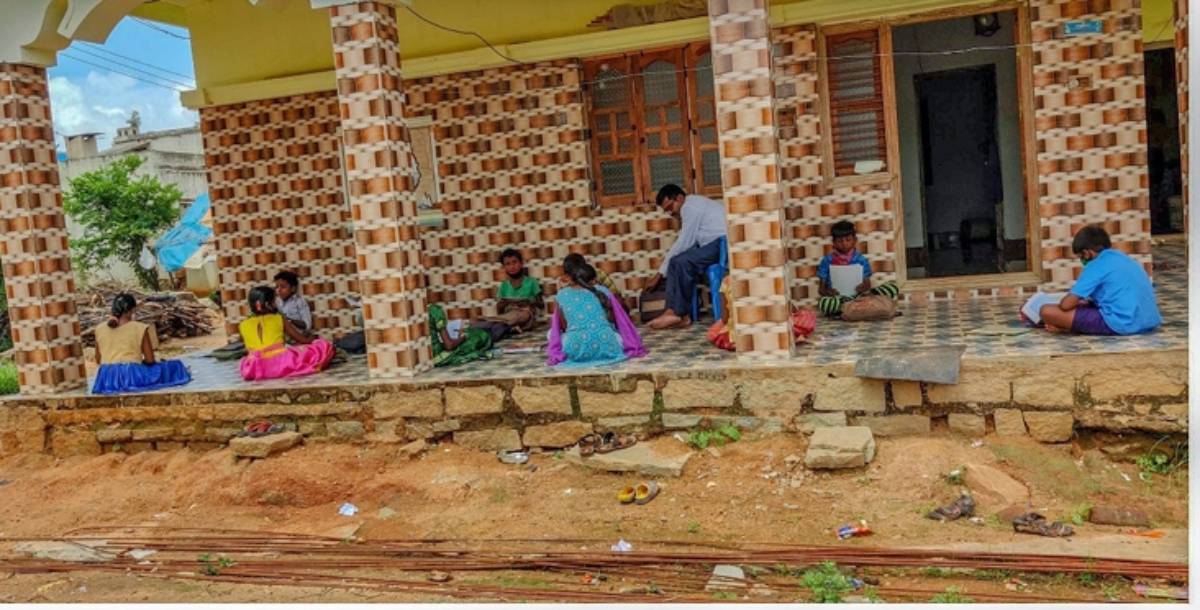
Pandemonium broke out in every single meeting and orderly discourse abandoned every time anyone started speaking about their children. It was clear that childcare ranked highest in their collective concerns, far above even finances and livelihood. Preparing a generation to face the world was priority number one.This is the challenge they had come to share with us.
The narration of experiences and discussions that followed were nowhere as structured and orderly as I will now try to present.
“The worst thing that has happened these past eight months is our children’s education. Everything else we have somehow managed. But to see our children out of school is really difficult. They are always and only playing in the streets. The moment we mention studies, their faces go sullen and if drag them in to sit with their books, they start moping. They don’t even look like students any longer.”
Mothers complained, “It is impossible to keep them cooped up at home all the time. They sneak out and get into all kinds of trouble. Heaven knows what bad habits they have picked up.”
“A few private schools have these Online Classes. But most of us who have somehow admitted our children to these ‘convents’ cannot afford fancy mobiles. We have ordinary phones. Not smartphones. And what do they learn that way? Please tell us what we should do. We are at our wits’ end.”
Balakendra Teachers said, “They have forgotten everything they learnt last year.Their reading skills are zero and they cannot even recite three times and four times multiplication tables.”
“They say that all children will be promoted this year. But what will a child do in the VI Std. if she has not learnt her V Std. syllabus?”
We agreed that, in order to bring some order to discussions and make sense of this vital problem, we need to perhaps break up our thoughts and responses into three separate issues:
- Primary children in government schools
- Primary children in private schools3
- Older children in high school and Youth in college
Primary Children in Government Schools
Everyone agreed that, in spite of our 40 yearlong efforts at re-admission of dropouts, not a single one of them had stayed on. No one could recall a single case of a child who had been pulled out of school for a year or two going back to complete 10 years of schooling.
Young boys may have been pulled out to graze sheep or work in a vegetable garden or a mechanic shop. Little girls would have been pulled out to take care of a new sibling. Coronavirus has pulled an entire generation out of school for a full year and, who knows, perhaps for two years.
Women immediately exclaimed, “This is so true! When a 10-12 year old boy gets `25- 30 at the end of the day after working with a mechanic or in a teashop, he becomes an independent Hero. There is no stopping him that evening.”
“Ah! And if he gets weekly wages of `150-180 every Saturday…”
Older men shuddered, “The world behind the bums of sheep and goats is so dull that it literally kills the brain.We know because we used to graze the landlord’s sheep before the Coolie Sangha came. Do you know how long it took for us to start thinking again?”
“Why blame children? What about us? Do you remember the adult literacy classes that were held in the Coolie Sangha 40 years ago? We got petromax lanterns and slates and blackboards. Not a single one of us learnt to write our names or read a board! Childhood is the only time to study and learn.”
I steered the discussions to the girl child by reminding women-under-40 of the sacrifices their mothers had made to ensure that they went to school.
“Every single one of you young women sitting here has finished 10 years of schooling.That is how you have come to sit here in this meeting.The Coolie Sangha supported more than 65,000 children go to school, exactly half of them girls. 70% of them completed a full 10 years, again half of them girls. Tell me, did this happen because of ADATS or your Mahila Meetings?”
Almost everyone, in every meeting, replied, “ADATS Children’s Programme”. As always, I strongly disagreed with this politically correct response.
“ADATS did nothing. Projects and programmes achieve nothing. In your case, even the money to buy books, clothes and pay Balakendra Teacher stipends was largely from your Sangha Funds. Parents did not ‘participate’ in an NGO programme. They ran their own programme and ADATS pitched in with technical assistance.
“It was your mothers’ stubborn determination that sent you to school and made you stay on for 10 full years. So that you should never become like them. You should not marry early and become chattels in in your homes.You should not touch the feet of your husbands every morning and seek their permission for everything you do. You should be independent, go to work in Bangalore if you wished, wear whatever you want, marry who you choose, and be equal to menfolk in every respect.”
It was to their mature credit that older women in the meetings paid close attention to my emotional outburst but maintained a dignified silence. I realised that they didn’t want to acknowledge what they knew to be a self-evident truth but didn’t want to trumpet. After a few silent moments, when it was clear they would not pitch in, I continued:
“The real danger we face is the loss of an entire generation. Not just here, but the world over. Not just poor families in villages, but everyone. In the next 35 years there will be an unschooled population in the world.
“Girls will be harder hit than boys. You will see a resurgence of under-age marriages, subjugation and a total loss of dignity and self-confidence in your daughters.
“Boys, on the other hand, will become as you yourselves said, ‘Heroes’ and grow into swaggering youth till they get married, have children of their own and face responsibilities. After that, they will develop the same macho traits as your fathers and grandfathers, shifting the blame on wives for their turning out to be miserable failures in life.”
There was a stunned stillness that comes from silent acknowledgement. I hadn’t quite finished with my eloquent discourse on parenting.
“Most Fathers play no role in their daughter’s education. They only transfer to their sons the same values that they live by. They want their sons to grow in their spitting images. It is Mothers who intrinsically understand what ‘education’ means; that it is a liberating process whereby her child gains new knowledge and develops individuality and a unique identity.
“Now it is up to you, Balakendra Teachers and young Mothers to make sure that an entire generation is not wasted. VHWs and older women in the Coolie Sangha have done their bit. Don’t let it all get reversed.”
Action Plan
- This year, the government has supplied workbooks for all subjects to all students right at the start of the school year in June
- Government school teachers have started conducting a few hours of classes under the trees, in temple verandas and the like. “We can’t take a fat government salary and sit at home while our children are wasted” is the universal sentiment of a vast majority of them.
- Balakendra Teachers, who haven’t stopped teaching young children even during the Lockdown, should support these government teachers by acting as “Managers” to ensure attendance for the few hours when the government teacher visits their village, make children do their homework after class,
- Village CSUs will make sure that masks are worn and physical distance maintained, and deal with health workers and
- Finally, the older women opened
“There are strict laws that government school teachers should not beat children. But that does not apply to you Balakendra Teachers. We give you Mothers’ Rights and Auntie’s Right. Whack them! Keep a stout stick in your hands at all times! Terrorise the kids so much that they become desperate to go back to regular school the moment government schools reopen!”
Everyone burst out laughing, but I understood the wisdom behind these words. A cardinal parenting lesson I have learnt from thousands of village Mothers, over the decades, is that when young children are scolded or even whacked for “bad boy” things they do, they accept and quickly sneak back to seek your favour. But if they were shouted at for no fault of theirs, merely in exercise of parental authority, they rebel.
Primary Children in Private Schools
In spite of our advice to the contrary, more than one-quarter Coolie Sangha supported children are enrolled in private schools. This is because schooled parents want their children to study in English medium. However, these underfunded private schools with underqualified and underpaid teachers do not meet the standards.
People from Kondorapalli said, “We shifted most of our children to a private school and the government school strength dropped to just 13-14 students, forcing the Block Education Officer to close the government school in our village. During Lockdown the private school also shut down because we didn’t pay fees and they couldn’t pay teacher salaries. Now our children have nowhere to go.”
Someone from Rascheruvu added, “We remember telling them not to lose the government school. They didn’t listen…”
After the Lockdown, only a few of the bigger private schools have attempted so- called Online Classes which are actually just regular classes conducted over zoom and on WhatsApp video calls, without any change in style or substance.
“We have, with great difficulty, got one of our children a smartphone for `12,000. I have three children. How can I buy two more smartphones? Even the cheapest data plan costs
`120 a month. Half the time we don’t get internet connectivity. When there is connection, he just plays online games with his friends and watches YouTube.”
“Sonia from Iddilivaripalli is the VII Std. and attends Online Classes on a smartphone. She has spoilt her eyes and has a constant headache now.”
“Bhanu Prakash from the same village is in the VI Std. His smartphone has problems and so he uses his friend’s phone whenever he can. As a result, he is not regular, misses some classes, and cannot follow the next lesson.”
Ä parent from Ongarlapalli said, “We made a blunder by admitted eight children from our village into a private school. They send lessons and homework to all eight children, in different classes, on WhatsApp to the only smartphone in the village. We have no clue as to what the messages are but can see our children having a ball. Heaven knows what they are studying!
“Nowadays everyone needs a mobile phone for their work. Shopkeepers, auto drivers, carpenters, masons, even vegetable venders. If we give our phones to our children for their classes, we lose orders and customers. Our trade suffers.”
I shared my own experience of the past eight months with 10 year old Jimmy in the V Std. He is in an English medium private school because I will not be able to help with his lessons if they are in any other language. In spite of having enough devices and a decent connectivity in the ADATS Campus, it is still a major challenge to ensure that he attends online classes, understands the lesson, writes his notes, does his homework and submits it on time every evening.
“Just like with you, I have to scream out his name 15-20 times, 3-4 times a day, to bring him in from the playground. Just before the class starts, he says that the battery of his Nexus tab is drained because he and his friends were watching breakdance on YouTube, and he just cannot find the charger. Ten minutes into class, the network dies and I have to give him a hotspot connect from my phone. Half the 40 minutes class is wasted with children shouting ‘It’s stucking4 Ma’am! We cannot see the board.’ and the teacher screaming back ‘Shut up and mute your audios’.
“Not a single day passes when I don’t lose my temper during his Home Studies.5 The other day, in utter frustration, I made a cardinal mistake by saying, ‘I’m tired and fed up, Jimmy! Do you want me to teach you and make you a clever boy, or do you want to go and play for the rest of your life?’ He calmly replied, ‘Go and play’, closed his books and walked out, leaving me gaping open mouthed.”
Every time I related this, the meetings roared with laughter with Mothers politely refraining from pointing out how stupid I must be to give a 10 year old a choice like that!
Looking back at my then spontaneous sharing of my own experiences with Jimmy’s home schooling, I now realise that I had crossed the thin line separating sympathy from empathy. Sympathy is the other’s concern for one’s suffering. Empathy goes beyond understanding; it is experiencing identical feelings.This gave weight to several of my passionate outbursts on parenting, scathing criticism of youth returning home empty handed, and the role played by Coolie Sangha youth in corrupting NREGA. Knowing me fairly intimately and having suffered my idealism for more than four decades, these were perhaps also the perhaps the moments they had been waiting for.
“Online Classes are not an option. It is only rich families who can afford them. And that too not for all children in a family.”
“Merely passing all the children and sending them to the next academic class is also not an option. Everyone should be asked to repeat.What does it matter if a whole generation of children finish school at 17 or 18 instead of the standard age of 16 years?”
The best option now would be to shift all primary school children back to government schools, support the teachers, actively participate in the School Management Committees and lobby with the government that all children need to repeat next year.
Older children in High School and Youth in College
It is far too late to shift VIII, IX and X Std. students to government schools and so the same action plan will not work. High school children have to visit their schools for in-person interactions, once a week, to clear doubts, get their notes/assignments and write tests. Fortunately, there has not been a single case of teacher or student getting infected so far.
“Bhavana from Iddilivaripalli is in the X Std. and has to go to High School in Chelur town every day. Her family had to sell a cow and buy a second-hand motorcycle to take her up and down.”
“Nanji Reddy has two daughters in college – 1st year B.A. and 2nd PUC. But there is no internet coverage in Bommaiagaripalli, his native village. In order to attend online classes, the girls have to walk with their shared smartphone towards the tower. It is a common sight to see them sitting on the roadside, in the shade of some rocks, attending online classes.”
“Krishnamurthy from G. Cherlopalli has two sons in VIII Std. and X Std.With great difficulty he got them a smartphone but they both have classes at the same time. Moreover, internet connectivity is erratic.”
Colleges have opened, closed and opened again. The biggest issue is lack of public transport.
Narasimha from Kondorapalli said, “I convinced my daughter to lose a year in 2nd B.A. I have promised her that I will make sure she completes her course even if it takes one more year.”
“I sent my son to Bellary to write an entrance exam. I was really scared.”
MG-NREGA
In every single meeting they spoke of NREGA works as one of the sole sources of cash during the Lockdown, but I challenged some of the claims as dubious.
I reminded them that for the first two or three years, impressive leakage-free NREGA works were executed on the exact same lines as the just stopped Dry Land Development Programme (DLDP). After that, Coolie Sangha youth had themselves conspired with Gram Panchayat officials to “buy” job cards, collect bank account details, manipulate records and draw NREGA wages. In return, their “clients” received a share for not doing any work.6
“This couldn’t have happened without your connivance”, I told the young people present in an unsparing and scathing rebuke, “No outsider could have convinced CSU Members to hand over job cards and bank details.”
“And you adults would have felt so proud that your sons were so ‘enterprising’, right? Just like political party leaders. My question is how you suddenly managed to get lifesaving NREGA wages this year?”
After much probing we calculated that NREGA works were carried out in only 84 of the 94 villages. In spite of these wages of `270 a day being one of the only sources of sustenance during the pandemic, not all Coolie Sangha families availed the government guaranteed 100 days of employment every year.
In fact, only 17 villages came close to availing 80% of their entitlement while most others settled for less than half.
| Gram Panchayat | NREGA conducted in | No. of Days | Average Days |
| Rascheruvu, Billur,Thimmampalli and Gorthapalli GPs | 14 villages | 588 | 42 |
| Marganakunta, Gulur and Kothakota GPs | 17 villages | 1,335 | 79 |
| Julapalya and Palyakere GP | 23 villages | 805 | 35 |
| Kanagamakalapalli and Mittemari GPs | 11 villages | 370 | 34 |
| Somnathpura and Venkatapura GPs | 19 villages | 1,022 | 54 |
| Total | 84 villages | 4,118 | 49 |
People from Kothakota Gram Panchayat said, “While what you say is generally true, we never slipped in our villages. We never forgot that it was our 22 yearlong DLDP that Rajiv Gandhi saw and got the idea to bring the Employment Guarantee Act for the whole country.Whichever party is in power, we will never forget what he and Sonia Gandhi did for us.”
“For the past 10 years we have implemented NREGA works just like we did the DLDP. Without corruption, without tractors and JCBs, and without ‘material supply’ bills. That is why we have, this year also, got more than three-quarter of our entitlement and there are still 4 months left in the year.”
People from Marganakunta Gram Panchayat said, “It is the same in our villages also. But we have not been able to do the works that we ourselves wanted, on our private lands and in the villages. The choice of works has been decided by Action Plans drawn up somewhere and forced upon us. But even when doing those works, we have resisted the use of machines and ‘material supply’.
“When they said that the type of work does need tractors we said, ‘Fine! But we won’t allow you to reduce our 100 days wage entitlement.”
I intervened to say that, to the best of my knowledge, the NREGA rules haven’t changed. Officials have to accept whatever work you ask for, wherever and why ever, in the Form No: 6 that a work gang submits. Moreover, the paying of piece rate wages, like for contractors, is not allowed.Wages have to be paid even for elderly citizens who manage to just come to the work spot and hang around.
Kothakota people agreed, “You are right! But that will happen only if we have control over our Gram Panchayats. If we are carless during elections we will face the consequence for 5 whole years.”
The Coolie Sangha
In every narrative on every concern, by everyone in every meeting, was a reassertion of the fact that they could not have managed without their unity and mutual support across caste, community and religion. Individuality was not an abandonment of the community; it was rising above narrow identities.
“This time the membership will rise. Everyone knows that they cannot survive without the Coolie Sangha. Dropped out members will return and many new families will join.”
References:
- https://www.adats.com/
- The Telugu-English word they use for assumption and supposition is “Example”
- The so-called “convent schools”
- If “Googling” has found its way into the dictionary, here is another one that richly deserves to be included.
- To be perfectly honest, I have paradoxically maintained my sanity in these insane times precisely because this child drives me crazy on a regular basis every single day. And then, after the ritual “अब टीवी देखने का मेरा समय है ” fight with Mario, at bedtime we have our warm re-affirmative exchanges.
- Please see the Postscript on our webpage at https://adats.com/home/dldp

